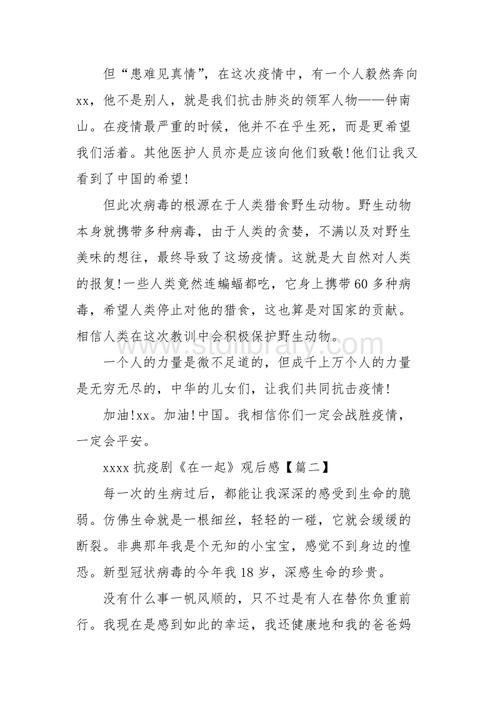心理抗疫心得体会
Title: Navigating Psychological Resilience During a Pandemic
In the face of a global pandemic, maintaining psychological resilience is paramount for individuals to navigate the challenges and uncertainties effectively. Here are some key insights and strategies to bolster your mental wellbeing during these trying times:
Acknowledge and Accept Emotions:
It's crucial to recognize and accept the wide array of emotions you may be experiencing, such as fear, anxiety, frustration, or sadness. These emotions are normal responses to an unprecedented situation. Avoid suppressing or denying them, as this can lead to increased stress and mental strain.
Stay Informed, but Limit Exposure:
While staying informed about the latest developments regarding the pandemic is important, excessive exposure to news and social media can fuel anxiety and distress. Set boundaries on your media consumption, and choose reliable sources of information to stay updated without becoming overwhelmed.
Maintain a Routine:
Establishing and maintaining a daily routine can provide structure and stability amidst the uncertainty. Set regular wakeup and bedtime hours, schedule time for work or study, exercise, relaxation, and socializing (even if it's virtual). A predictable routine can foster a sense of normalcy and control.
Practice SelfCare:
Invest time in activities that nurture your physical, emotional, and mental wellbeing. Engage in regular exercise, eat nutritious meals, prioritize adequate sleep, and practice relaxation techniques such as deep breathing, meditation, or mindfulness. Allocate time for hobbies and activities you enjoy, as they can provide a welcome distraction and boost your mood.
Stay Connected:
Maintaining social connections, albeit virtually, is vital for combating feelings of isolation and loneliness. Make an effort to regularly reach out to friends, family members, and colleagues through phone calls, video chats, or social media platforms. Share your experiences, concerns, and support each other through these challenging times.
Cultivate Resilience:
Resilience involves adapting and bouncing back from adversity. Cultivate resilience by focusing on factors within your control, practicing optimism, reframing challenges as opportunities for growth, and maintaining a sense of purpose and meaning in your life. Seek support from trusted individuals or mental health professionals if you're struggling to cope.

Engage in Acts of Kindness:
Helping others can have a profound impact on your own wellbeing. Look for opportunities to support and assist those in need within your community. Acts of kindness, whether big or small, can foster a sense of connection, purpose, and fulfillment.
Seek Professional Support:
If you find yourself overwhelmed by persistent feelings of anxiety, depression, or distress, don't hesitate to seek professional help. Many mental health professionals offer teletherapy services, making support accessible even during periods of social distancing. Reach out to a therapist or counselor who can provide guidance, coping strategies, and emotional support tailored to your needs.
In conclusion, navigating the psychological challenges of a pandemic requires resilience, selfcare, social support, and a proactive approach to managing emotions. By implementing these strategies and seeking help when needed, you can safeguard your mental wellbeing and emerge stronger from this challenging period.
Remember, it's okay not to be okay sometimes, but it's essential to take proactive steps to prioritize your mental health and wellbeing.











